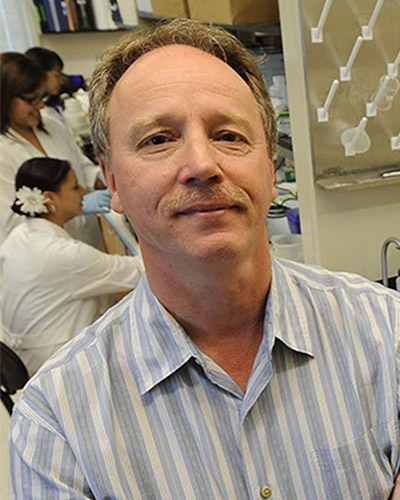
The immune system plays a fundamental role in the defense against microbial pathogens. However, erroneous activation of the immune system can lead to autoimmune diseases such as multiple sclerosis (MS) and Type 1 diabetes (T1D). Dr. Forsthuber's lab pursues several lines of investigation to understand how T cells contribute to autoimmune diseases and protection from infection, and how to modulate T cell immunity for therapeutic purposes in humans.
Autoimmune Diseases
Work in the lab focuses on better understanding the pathologic immune mechanisms that driving autoimmune diseases such as MS, T1D, and autoimmune myocarditis. Specifically, we study immune mechanisms in the central nervous system during experimental autoimmune encephalomyelitis (EAE), the animal model for MS. The lab has generated transgenic and knockout mouse models to investigate the role of important autoimmune disease-related genes such as HLA-DR. Moreover, we study human autoimmune heart disease in a model called experimental autoimmune myocarditis.
Translational Research
Much of the research in the Forsthuber laboratory is aimed towards direct applicability to human diseases, for example by developing novel drugs for autoimmune diseases, targets for microbial vaccines, or biomarkers to monitor the efficacy of treatments for autoimmune diseases. Along these lines, the lab has helped develop MHC blockers to inhibit the pathogenic effects of human autoimmune disease-associated MHC II molecules, peptide mimetics to eliminate autoimmune T cells with superagonist variant peptides, and cytokine inhibitors.
T Cell Biology
One of the lab's current interests is the role of MAP kinases in T cell development and function. Moreover, the lab studies T cell memory.



